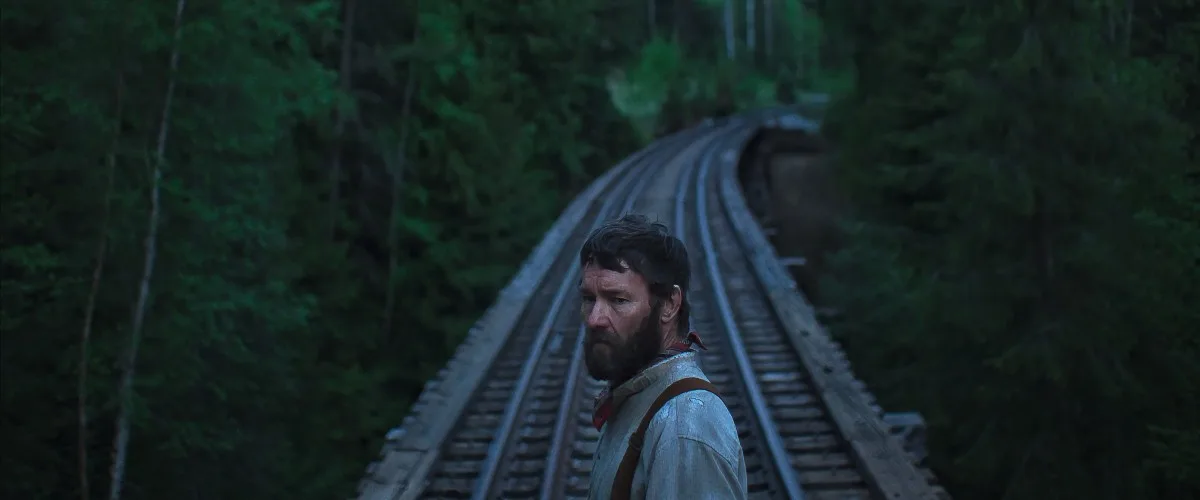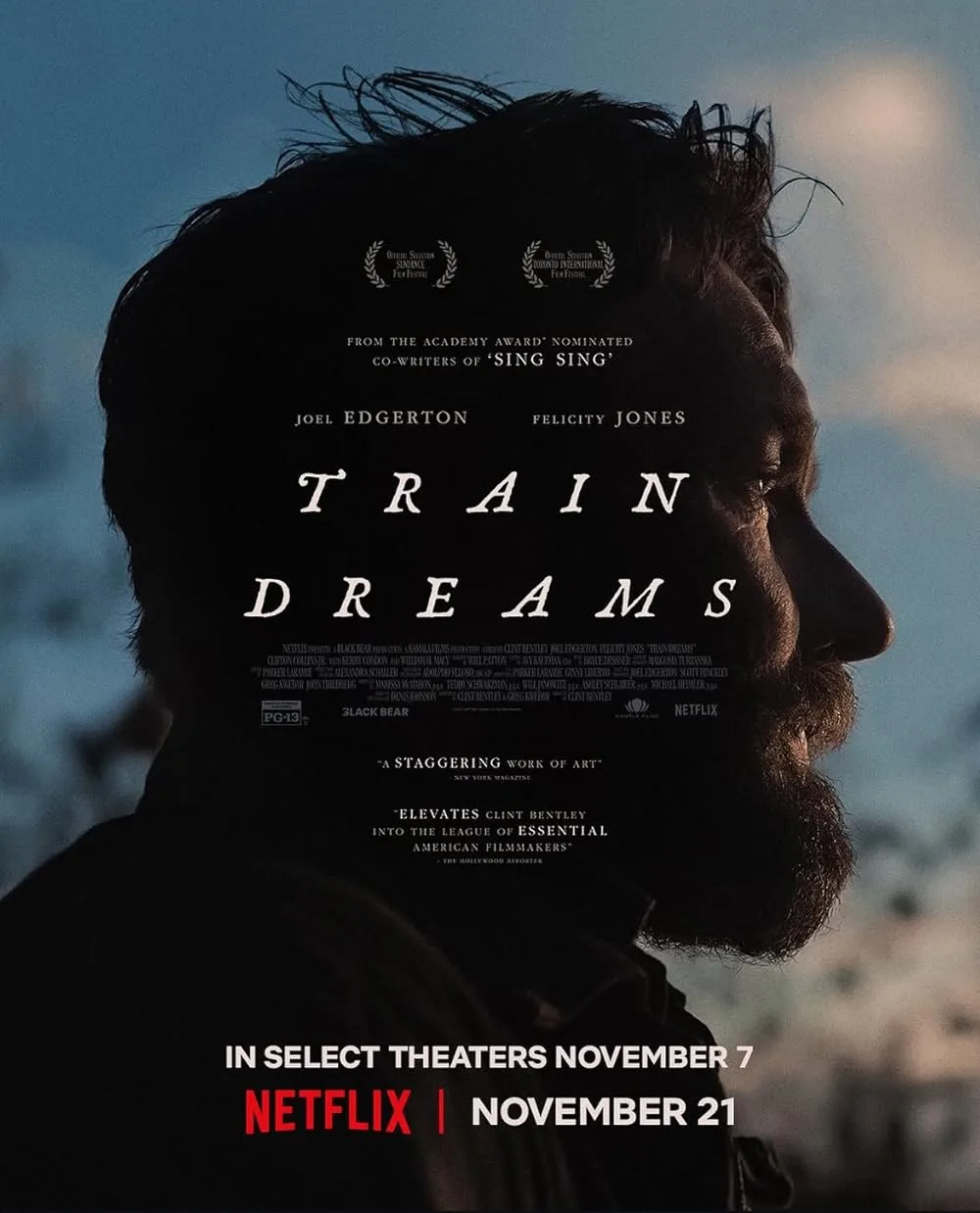Clint Bentley’s magnificent “Train Dreams” is a film of echoes. In its generation-spanning drama, life & death intertwine in the duality of the symbol of the train, something that represents both progress and destruction. The railroad tracks that expanded their way across the United States in the 20th century both made the world smaller by connecting people and altered the landscape by cutting down trees that had been there for centuries to do so. Working from a novella by Denis Johnson, Bentley and co-writer Greg Kwedar (“Sing Sing”) tell a story of an ordinary life in an extraordinary way, a man who believed his existence was shackled by guilt and trauma. A birth-to-death character study, “Train Dreams” is a meditation on the beauty of everyone and everything, how we are connected to both the earth and those who walked it before us.
Joel Edgerton does the best work of his remarkable career to date as Robert Grainier, a stoic man who marvels at the changing landscape in his work as a train laborer, someone who cuts down trees, pounds tracks into the ground, and even helps build bridges, often away from home for months at a time. Much of his story is told via narration by the wonderful Will Patton, whose voice is something both soothing and powerful at the same time. He speaks for the often-silent Robert, telling us about formative encounters on the job, including a key moment when a Chinese immigrant was murdered. Robert considers for the rest of his life if his inaction at that moment led to the tragedies that would befall him.
These opening scenes play like memories, both dreamlike and tactile. You can smell the fire keeping the workers warm and feel the moisture in the air as Patton’s narrator tells us of men that Robert met on the tracks, including a murdered charlatan and an explosives expert played by William H. Macy, who makes a meal out of a snack of a character, giving this guy decades of lived-in three-dimensionality in just a few short scenes. It’s an incredibly short performance but also somehow one of Macy’s best, formative to the film in that it helps ground it right when it could become too shapeless.
On one of his breaks from the tracks, Robert meets Gladys (Felicity Jones) and falls deeply in love. The early scenes with them recall the beauty of the Malick that feels like the biggest inspiration here, “Days of Heaven,” two figures against the backdrop of magic hour, imagining the shared life ahead of them in a world of overwhelming beauty. A scene in which they map out with rocks the house they plan to build on a riverside is a gem—two young people with everything ahead of them. They end up building that house and having a daughter before unspeakable tragedy shatters Robert’s dreams.
Working with cinematographer Adolpho Veloso (who also shot Bentley’s gorgeous “Jockey”) and utilizing a captivating score by the great Bryce Dessner (a member of The National), Bentley gives his film the quality of a dream or a memory, but the reason it’s one of the best of the year is how he threads the needle between brutal reality and wistful poetry. In one of the film’s first shots, we see a pair of boots nailed to a tree, beaten there by weather and time for what looks like generations. It’s the kind of thing you spot in the woods and maybe pause to consider the story behind it. How did they get here? Whose were they? What was his story? It’s both lyrical and mundane at the same time, a worker’s product given a sort of mythical grace, another duality that weaves its way through the entire film. Life is ordinary; life is beautiful.
Bentley also proves himself a deft director of performers. A lot of filmmakers don’t know how to balance acting within a piece that’s this aggressively reaching for poetry, often allowing character to take a back seat as it gets lost in pretentious imagery, but Bentley guides his ensemble to play the reality of their characters instead of the artistry of the overall project. This is no better exemplified than in Edgerton’s subtle work. Playing a guy who watches more than speaks can be difficult as actors often rely on dialogue instead of listening to define their characters, but we come to know Robert through Edgerton’s eyes and body language, amplified by how Patton delicately conveys his inner monologue through some of the best narration ever. Voiceover is often a crutch for a writer-director but the way Bentley deploys Patton’s work here is transcendent, like we’re listening to a great storyteller. It plays into that overall theme again: We all have a great story to tell. May we all have someone as eloquent to tell it.
Again, it’s a story of balance. This world can be both magnificent and soul-crushing, even at the same time. We carry our pain and our joy in equal measure, both defining us. There’s an amazing line in “Train Dreams” spoken by someone who meets Robert late in life, played by Kerry Condon: “The dead tree is as important as the living one.” We are connected to each other and the earth like train tracks across the heartland, moving us forward while leaving marks that take generations to fade away. If we’re lucky, there’s someone to tell our story. Or remember us in their own.
This review was filed from the Toronto International Film Festival on September 12. It opens on November 7, 2025, on Netflix on November 21.




















